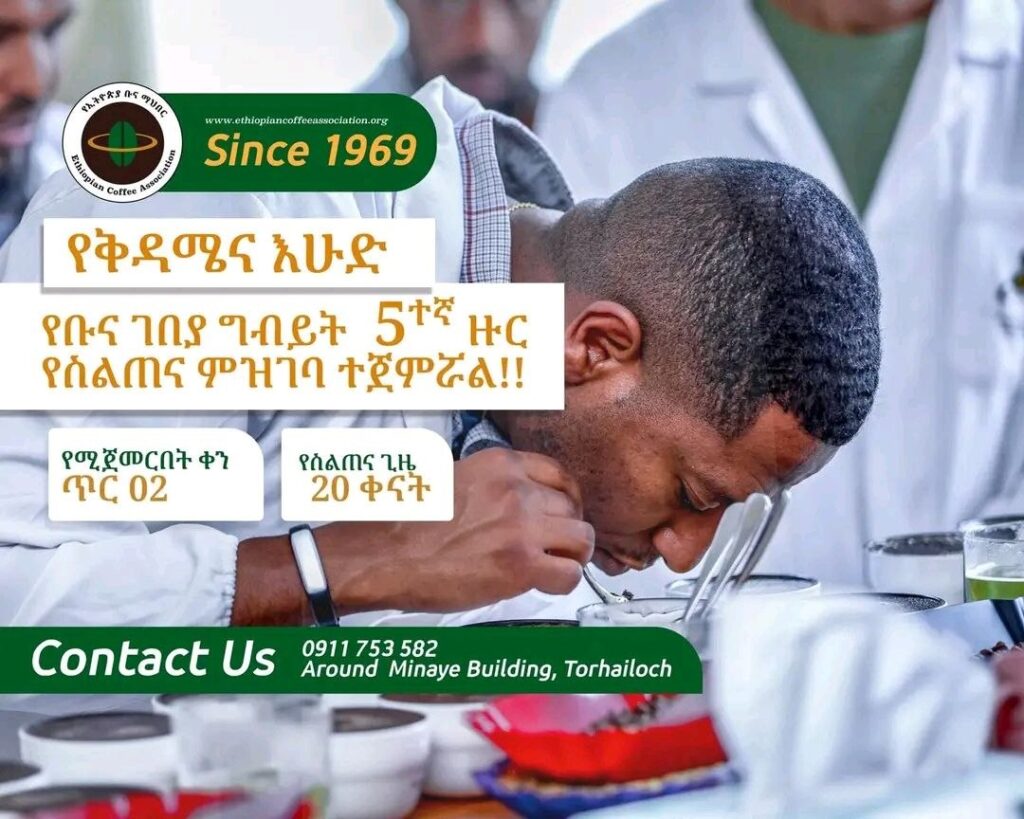Ethiopian Coffee Association (ECA)

Ethiopian Coffee Association (ECA) was founded in 1969 by major Ethiopian coffee exporters as a non-profit making and major promoter of Ethiopian Coffee in the international market.
Ethiopian Coffee Association
We demonstrate the coffee sector and the association with the most expertise in the field.
Ethiopian Coffee Association is a nonprofit, membership-based organization that encompasses coffee growers, coffee roasters, and traders. The association was built to support the coffee exporters to coffee importers living in different countries across the globe, disseminate world coffee market information to the members, and also liaisons between the Government and coffee exporters including other actors in the coffee value chain with a strong value of fairness, transparency, teamwork, and persistence.


Striving to Augment Quality, Traceability, and Sustainability of Ethiopian Coffee.
Our Coffee Association is mainly working to promote Ethiopian Coffee to the world by maintaining organic coffee’s quality, sustainability, and traceability. The association provides coffee market information services, coffee cupping and training to its members.
Vision
The Association aspires to support Ethiopian coffee to be one of the top preferred coffees in the world.

Our Services
Our Coffee Association is mainly working to promote Ethiopian Coffee to the world by maintaining organic coffee’s quality, sustainability, and traceability. The association provides coffee market information services, coffee cupping and training to its members.
Coffee Trade Linkage & Networking
We create coffee trade linkage and networking
Coffee Price and Policy
Consistently informing international coffee price movement and coffee policy change to our members
Cupping services
Cupping services
Conciliating role
Conciliating role in conflict of interest between our members and the governing body
Training
Coffee quality training program, marketing and warehouse training and consultancy
Trade Report
Annual coffee trading report and consumer market outlooks
Ethiopian Coffee Association
Ethiopian Coffee
Coffee is growing naturally in Ethiopia and most of the coffee is under shade without the use of agricultural chemicals. Dry processed bean is the most commonly used coffee preparation methods in Ethiopia but, wet-processed beans are getting more popular since recently. There are numerous varieties of coffee bean with their own distinct flavor and sizes. The major specialty coffee in Ethiopia and their flavors are:


Our Certificates
We are certified by 10th AFCA exhibitors and winner, 19th African fine coffees conference and exhibition, International coffee event in Ethiopia organizer, Appreciation for long standing AFCA member and more.
latest news
Coffee Cupping Training (Regular and Weekend Classes)

The Ethiopian Coffee Association is delighted to announce the 5th Round Training on Coffee Cupping, Raw Analysis and Coffee Marketing. This programme is designed to strengthen knowledge, skills and capacity in the coffee sector – from quality to international trade.
Training Duration
Regular Class: 45 Days
(Monday–Friday, 3 hours per day)Weekend Class: 20 Days
(Saturday & Sunday, 3:00 AM – 11:00 AM local time)
Training Fee
- Regular Class: 30,000 ETB per person
- Weekend Class:
40,000 ETB Per Person
ECA Office – Torhayloch Around minaye Building, Omega School
To register deposit the fee to CBE account number 1000001847175 and present your receipt to the association.
For details, Please Contact
Office Number: +251114666490/0911753582
our newsletter
Subscribe to get info and new notification
Individual company will have full access to networking with international coffee industries, market researches, sustainability guides, coffee cupping protocols and standardization.




